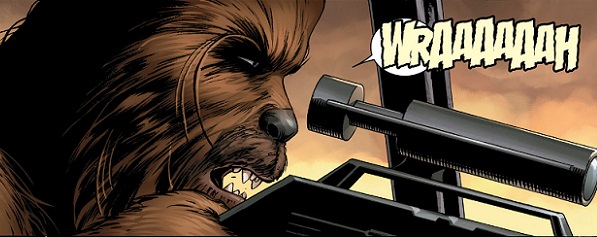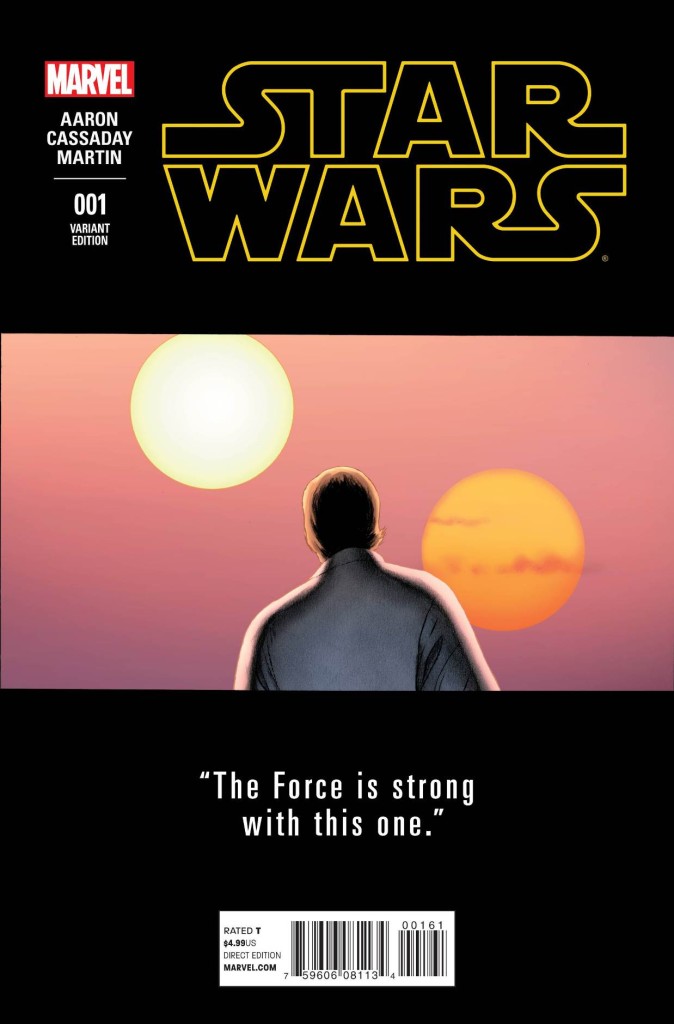

Star Wars isn’t just the most popular sci-fi/fantasy franchise in history - it’s also one of the most contested by its fanbase. So when Overseer Aggadeen asks the motley group of Han, Leia, Luke, and R2-D2 “What kind of envoy are you?” during a secret raid on the Empire’s largest weapons factory, I’ll be damned if Harrison himself isn’t talking directly into my brain when Han spits back, “The rebellious kind.” The moment doesn’t translate particularly well to straight text without Cassaday’s photoreal-ish depiction of our heroes dropping their act to pounce nearby Stormtroopers, but it did stop me from feeling cynical toward Star Wars for the first time since Jar Jar spoke in Phantom Menace. With this in mind, the success of Marvel’s newly-acquired Star Wars brand hinges not on whether the plot and its associated details flow slavishly between A New Hope and Empire Strikes Back without any continuity glitches, but on whether we hear Harrison Ford’s voice when a dialogue balloon appears next to Han Solo’s face.

S.H.I.E.L.D didn’t form the Avengers in the team’s 1963 comic debut, so where was the outcry when Nick Fury assembled the team in Joss Whedon’s gah-zillion dollar FX romp? It didn’t exist, because Iron Man behaved like Iron Man and Cap acted like Cap, and that’s all anyone paid attention to. The Joker had nothing to do with Two-Face’s origin in the comics, but did anyone complain when The Clown Prince of Crime played an integral role in Harvey Dent’s transformation in The Dark Knight? No.

In reality, fanboys and girls care way, way more about nailing characterization than adhering to decades upon decades of monthly mythology. Here’s an oft-propagated myth that’s mostly nonsense: “Comic book fans get pissy if screen adaptations of their favorite stories or characters don’t mirror their original ink-and-pulp origins exactly.” For instance, some assume comic nerds will boycott Captain America: Civil War if Spider-Man isn’t in it.


 0 kommentar(er)
0 kommentar(er)
